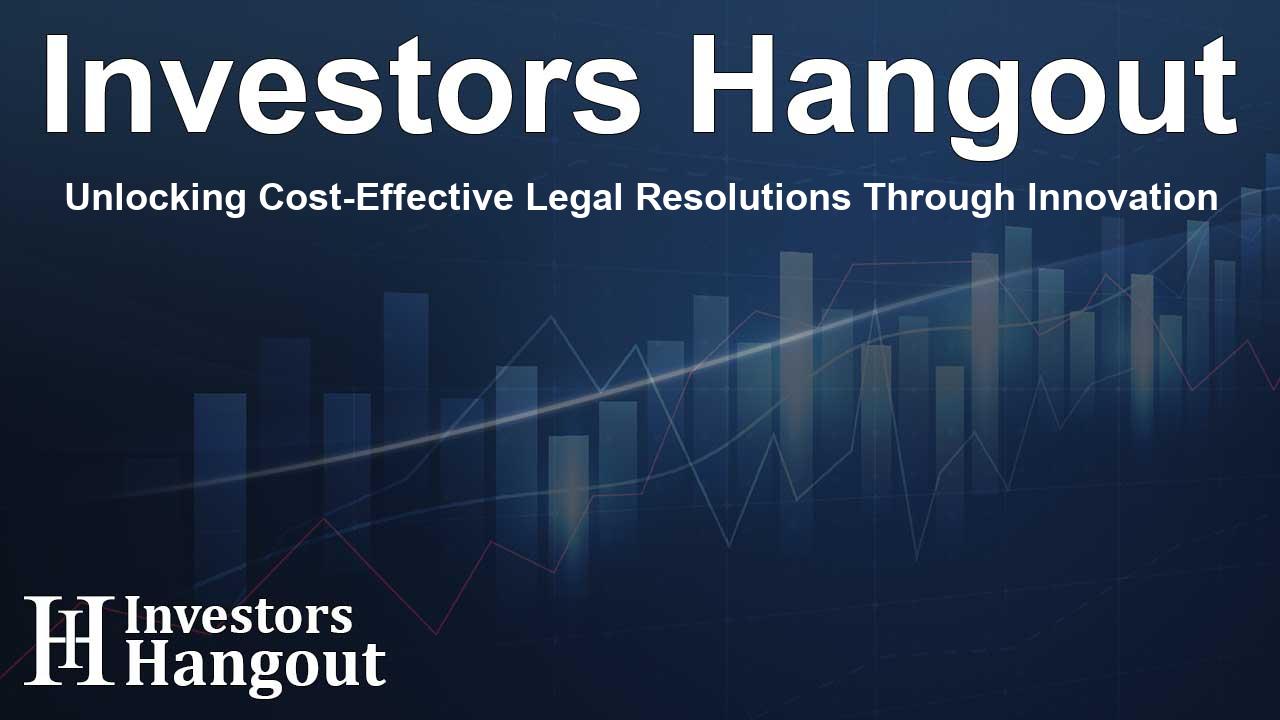Unlocking Cost-Effective Legal Resolutions Through Innovation

Revolutionizing Legal Finance for Affordable Resolutions
Affordable Solutions for Legal Challenges
Litigation finance is evolving rapidly, allowing lenders who cover litigation costs for legal disputes to offer competitive financing options. This new capability comes with the introduction of Comprehensive Adjudication, a groundbreaking approach to resolving legal conflicts efficiently. Developed by the innovative reform nonprofit Intelligent Justice, this method promises decisions that are not only quicker but more affordable than traditional courtroom litigation.
With the rising costs of legal proceedings, many parties find themselves in financial strains as they grapple with the complexities of the judicial system. Comprehensive Adjudication addresses these concerns by providing a structured and streamlined alternative that significantly cuts both time and cost. By bringing together both parties under a shared adjudicator, disputes can be adjudicated in a streamlined manner, offering resolution in a fraction of the time it typically takes.
How Comprehensive Adjudication Works
The process begins when parties involved in a legal dispute decide to opt for Comprehensive Adjudication. Instead of each party hiring separate legal teams—often leading to redundant research and analysis—both parties share the cost of a single neutral adjudicator. This adjudicator, chosen for their relevant expertise, conducts a thorough review of the facts and applicable laws.
Eliminating Inefficiencies in Litigation
A major hurdle in traditional litigation is the extensive time waste associated with procedures. In a typical courtroom setting, evidence must often be presented repeatedly, leading to prolonged lawsuits that can take years to resolve. Comprehensive Adjudication counters this by allowing the adjudicator to access the evidence and question witnesses immediately. This expedient approach eliminates unnecessary delays and expenses, offering a just outcome in a fraction of the time.
Additionally, the costs associated with litigation are significantly decreased. The expenses of a panel of attorneys working separately can be overwhelming. However, with one legally proficient adjudicator overseeing the entire process, costs are effectively cut in half—making it a financially attractive option for both parties.
The Benefits of Choosing Comprehensive Adjudication
One of the remarkable benefits of the Comprehensive Adjudication system revolves around its potential for significantly lowering financial burdens. Legal disputes can often lead to exorbitant and unpredictable expense. By providing a clear framework with predictable costs, parties can budget effectively, eliminating the anxiety associated with uncertain legal fees.
Creating a Fair and Just Process
The ethos behind this innovative system lies in its fundamental goal: justice. Unlike traditional mechanisms that often entrench bias and inefficiency, Comprehensive Adjudication emphasizes neutrality. The adjudicator operates independently, advocating for a balanced examination of facts and law for both parties. This ensures that cases are resolved fairly and appropriately—a benefit that resonates deeply with those involved in legal disputes.
Expanding Access to Justice
Comprehensive Adjudication does not only enhance the efficiency of dispute resolution; it also broadens access to justice for average citizens. The traditional barriers associated with legal costs often leave individuals unable to seek recourse or defend their interests. By lowering the financial and procedural thresholds, Comprehensive Adjudication paves the way for more individuals to pursue just outcomes in disputes, fostering a more equitable legal landscape.
Ultimately, the rise of Comprehensive Adjudication heralds a new era for litigation finance. For funders, the reduced risk and enhanced returns present unique investment opportunities. For disputing parties, the prospect of timely and cost-effective resolutions can put the power back in their hands, ensuring that disputes are settled fairly and efficiently.
Frequently Asked Questions
What is Comprehensive Adjudication?
Comprehensive Adjudication is a system designed to resolve legal disputes more efficiently and affordably by using a single neutral adjudicator selected by both parties.
How does it lower legal costs?
By eliminating the need for separate attorneys for both parties and splitting the costs of a neutral adjudicator, the overall expenses in legal disputes are significantly reduced.
Is the process faster than traditional litigation?
Yes, Comprehensive Adjudication typically resolves disputes in a fraction of the time required for traditional court litigation, avoiding delays and procedural redundancies.
Who chooses the adjudicator?
The adjudicator is jointly selected by both parties from a list of qualified candidates with relevant expertise in the specific legal field of the dispute.
Can more people access this system?
Yes, by lowering costs and streamlining processes, Comprehensive Adjudication makes legal recourse more accessible to average citizens and those with limited resources.
About The Author
Contact Dominic Sanders privately here. Or send an email with ATTN: Dominic Sanders as the subject to contact@investorshangout.com.
About Investors Hangout
Investors Hangout is a leading online stock forum for financial discussion and learning, offering a wide range of free tools and resources. It draws in traders of all levels, who exchange market knowledge, investigate trading tactics, and keep an eye on industry developments in real time. Featuring financial articles, stock message boards, quotes, charts, company profiles, and live news updates. Through cooperative learning and a wealth of informational resources, it helps users from novices creating their first portfolios to experts honing their techniques. Join Investors Hangout today: https://investorshangout.com/
The content of this article is based on factual, publicly available information and does not represent legal, financial, or investment advice. Investors Hangout does not offer financial advice, and the author is not a licensed financial advisor. Consult a qualified advisor before making any financial or investment decisions based on this article. This article should not be considered advice to purchase, sell, or hold any securities or other investments. If any of the material provided here is inaccurate, please contact us for corrections.
